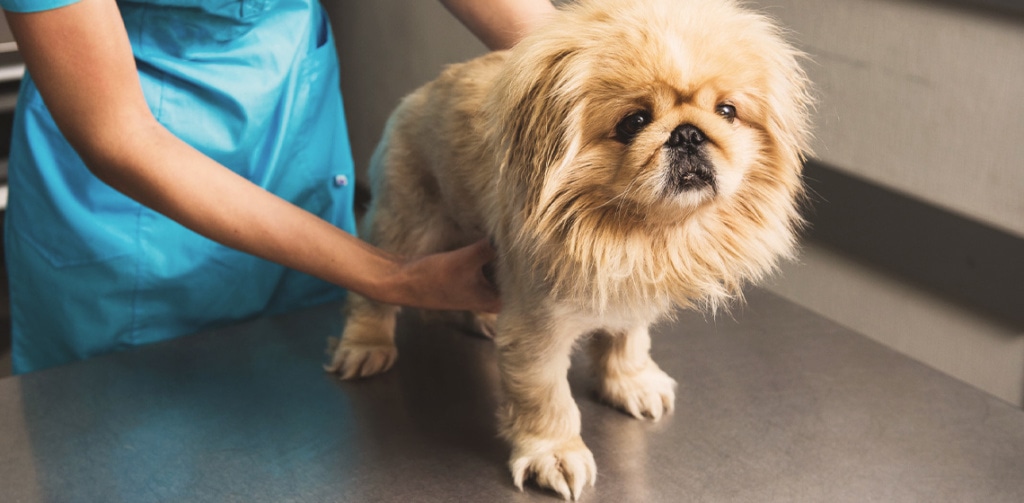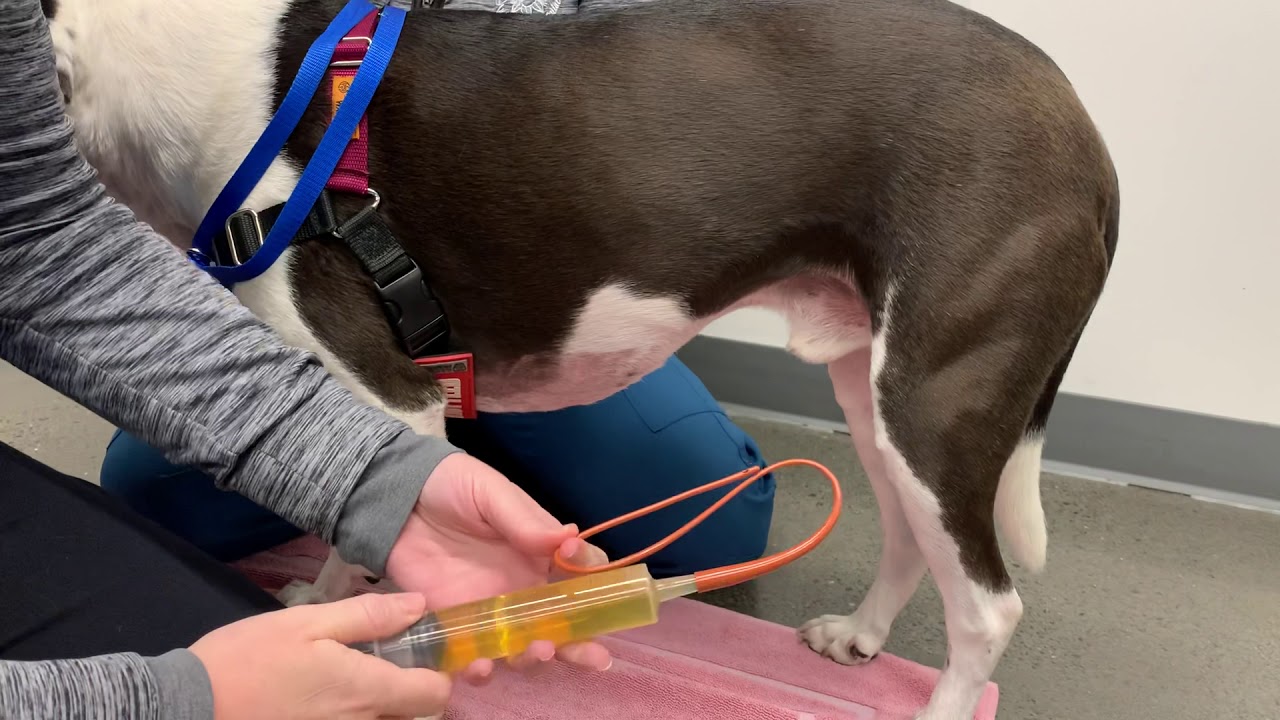A dog sheath infection, though often overlooked, can significantly impact a dog’s health and well-being. This condition, affecting the genital area in male dogs, requires prompt attention and understanding to ensure the best care for our beloved pets.
What is a Dog Sheath Infection?
A dog sheath infection, also known as preputial or penile infection, or Balanoposthitis, refers to an inflammation or infection of the sheath surrounding a male dog’s penis, accompanied by a mucopurulent discharge. This condition can arise due to various factors, leading to discomfort and potential health concerns for the affected dog. Common in sexually mature male dogs, it is usually mild and tends to resolve on its’ own. However, in more persistent and severe cases, serious health issues can develop, such as infection, pain, urogenital and copulation problems, fevers, and even necrosis of penile tissues.

Symptoms of Dog Sheath Infection:
Recognizing the signs of a sheath infection is crucial for timely intervention. Symptoms may include:
- Discharge from the penis or foreskin that is mucopurulent (mucus mixed with pus), purulent (pus), or bloody
- Excessively licking or biting the foreskin or genital area
- Inflammation and swelling of penis and foreskin
- Ulcers present in foreskin and penile mucosa, or the skin inside the foreskin
- Blisters on penis and foreskin
- Bleeding from penis or foreskin
- Cuts or tears on the penis and foreskin
- Pain in foreskin and penile area
- Abnormal tissue growth on penis
- Incontinence
- Trouble urinating
- Discharge from urethra
- Urine dribbling
- Urinary tract infection
- Kidney stones
- Dry, scaly patches on penis and foreskin, indicative of atopic dermatitis
- Raised follicles on penis in cases of hyperemia

If the condition is left untreated, these signs of a more serious infection may develop:
- Abscess on penis or foreskin
- Stenosis, or when the foreskin cannot fully retract and can restrict or close the opening of the penis
- Phimosis, or the inability to extrude the penis
- Lethargy
- Fever
- Lack of appetite
- Penis and foreskin scarring
- Pain during copulation
- Reduced libido
- Necrosis of tissues
Recommended:
Causes of Inflammation of the Penis and Prepuce in Dogs
Causes of balanoposthitis in your dog may include:
- Trauma
- Snake or insect bite
- Foreign body, such as hair, string, cords, grass, sand or other small objects
- Bacterial infection, such as Mycoplasma and Staphylococcus
- Viral infection, such as canine herpesvirus and calicivirus
- Fungal infection, such as Malassezia
- Protozoal infection
- Self-trauma, such as excessive licking
- Atopic dermatitis
- Urinary tract infection
- Poor hygiene
- Hyperemia of the penis, or an excess of blood flow
Diagnosis and Treatment:
Veterinary assessment is necessary to diagnose and treat a dog sheath infection effectively. The vet may perform a physical examination and may recommend the following:
- Culture and Sensitivity Testing: Identifying the specific bacteria or fungi causing the infection to determine appropriate treatment.
- Antibiotics or Antifungal Medications: Prescription of medications tailored to combat the identified infection.
- Topical Treatment: Application of medicated creams or ointments to the affected area.
- Hygiene Recommendations: Advising on proper cleaning techniques and hygiene practices for ongoing prevention.

Preventing Dog Sheath Infections:
Prevention plays a pivotal role in minimizing the risk of sheath infections in dogs. Owners can take proactive measures, including:
- Regular Cleaning: Implement a routine of gently cleaning the sheath area with vet-approved cleansers.
- Hygiene Maintenance: Ensuring proper grooming and hygiene practices for the pet.
- Regular Vet Check-ups: Schedule routine veterinary examinations to detect and address any early signs of infection.
References
- “Urogenital Disorders in Dogs” – By Peter E. Holt, published in the Veterinary Clinics of North America: Small Animal Practice in 2015.
- “Common Genital Problems in Male Dogs” – An article in The Merck Veterinary Manual.
- “Canine Reproductive and Genital Diseases” – A publication from the American College of Veterinary Surgeons.
- “Clinical and Pathological Features of Canine Sheath Infections” – A study in the Journal of Veterinary Science.
- “Infectious Diseases Affecting Canine Genital Tract” – A comprehensive review in Veterinary Research Communications.
- American Veterinary Medical Association (AVMA)

